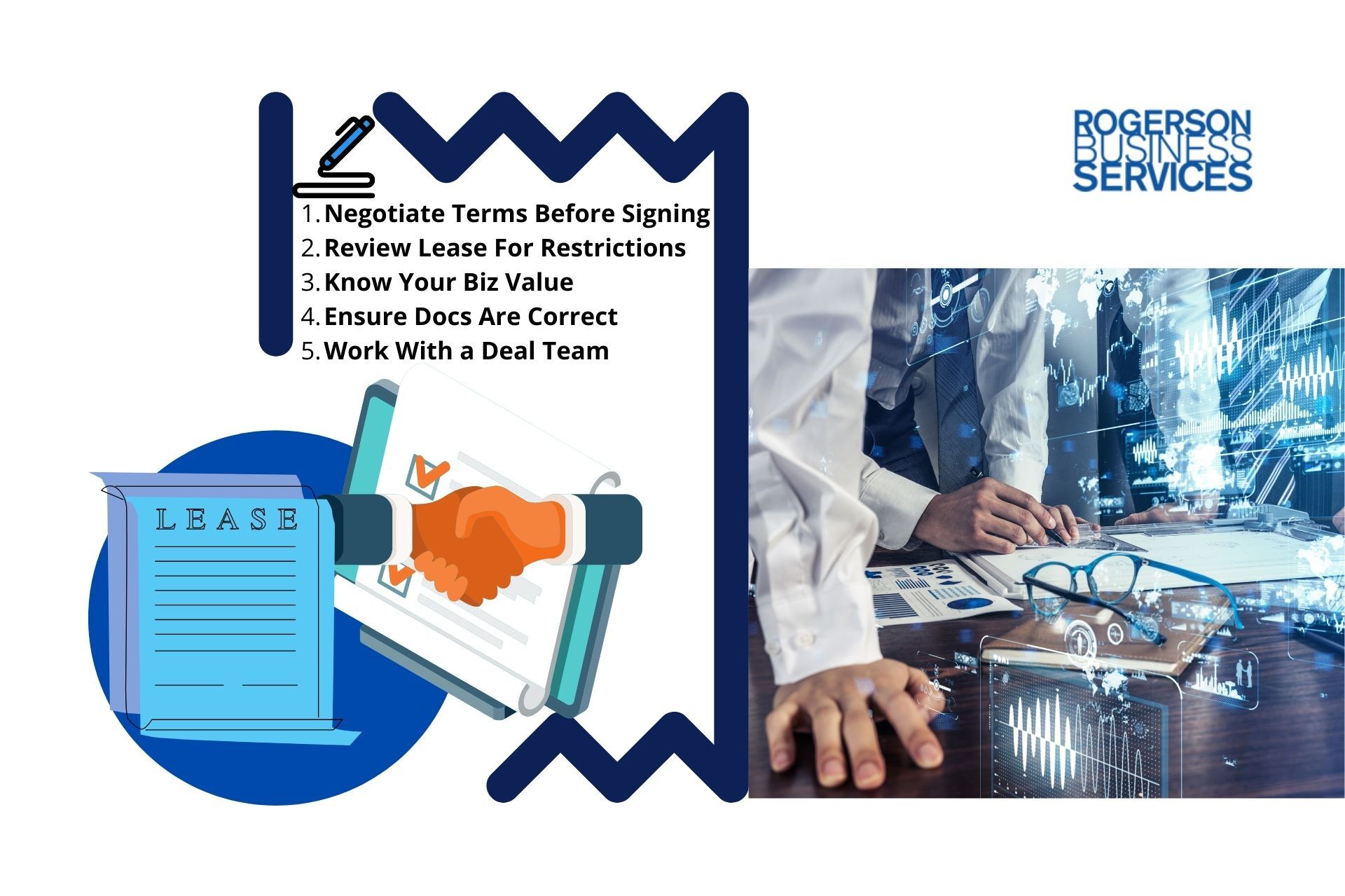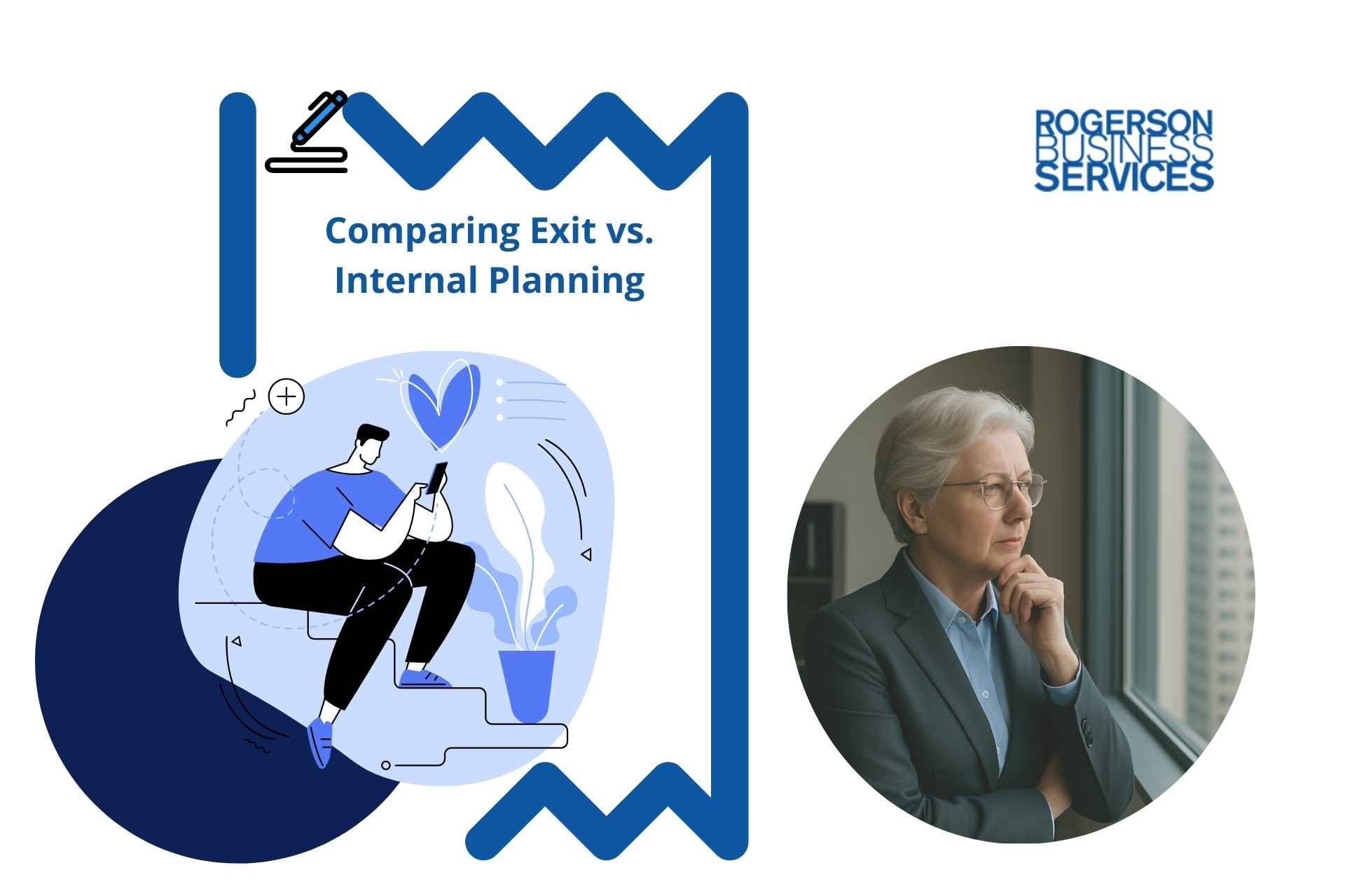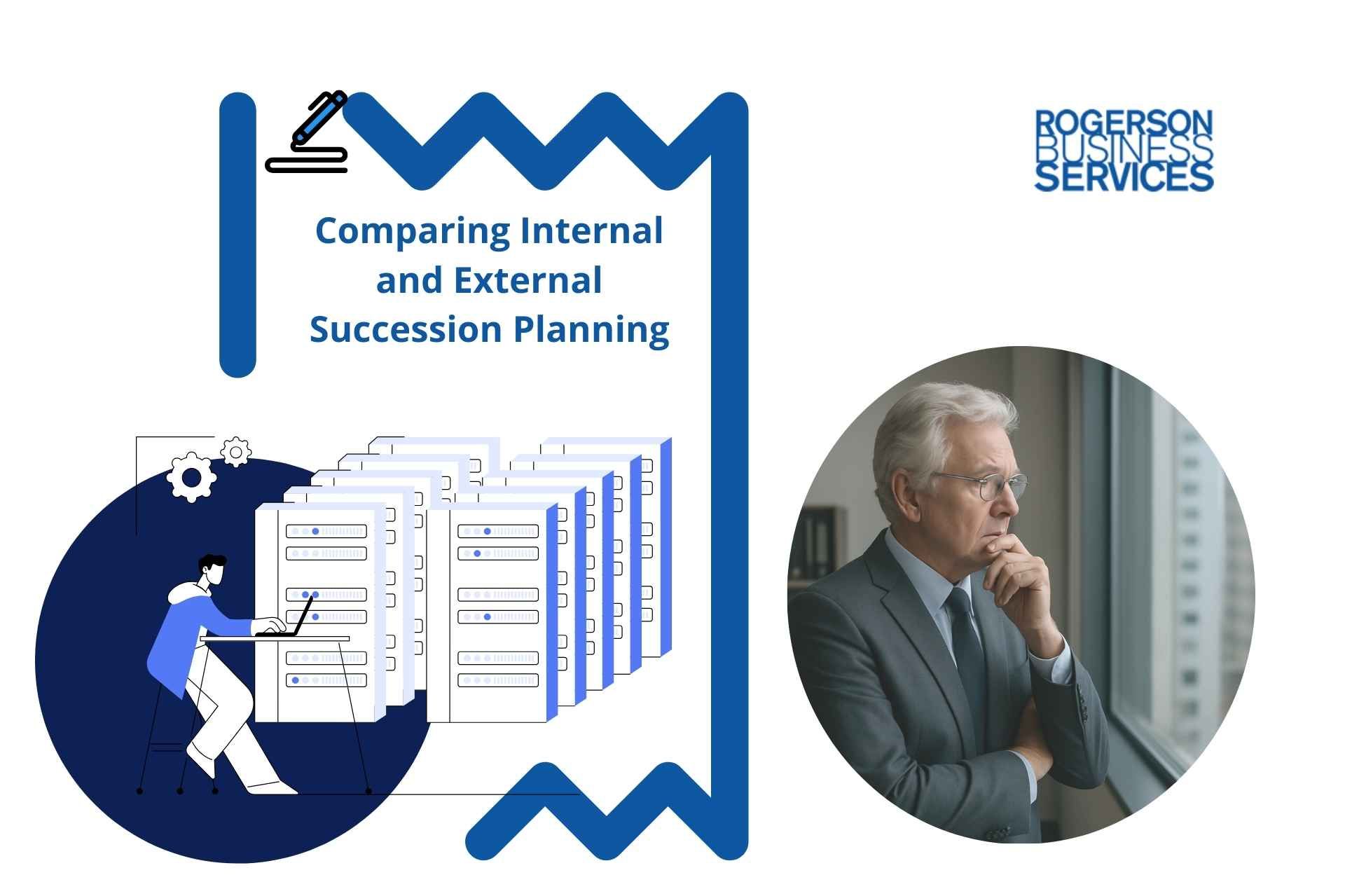Can a Landlord Stop You From Selling Your Business | M&A Deal
Selling A Business With A Lease
If you're planning to sell your business, you will probably want to consider how the lease might factor into the deal.
Can a landlord stop you from selling your business?
In reality, there are often no simple answers regarding property under lease.
We reveal 5 tips on how to sell your business with a lease - read on...

Companies may consider mergers and acquisitions (M&A) to grow and become more competitive.
However, the process typically takes a lot of time and effort to research potential target companies to grow entrepreneurship through acquisition (ETA).
Before you go about selling a business that has the property under a lease, it's crucial to understand how this aspect can impact a sale. The buyer may need to evaluate the lease portfolio of the selling company and how it might affect the deal integration.
Selling a business with a lease can be a complex process.
We'll walk you through the below five tips to answer: "Can a landlord stop you from Selling your Business?"
5 Tips: Selling a Business with a Lease
Your landlord cannot stop you from selling your business, even if you have a lease. However, your landlord can potentially obstruct the M&A deal if you violate your lease.
For example, if your lease prohibits you from using the property for a particular purpose, and you sell the business while still using the property for that purpose, your landlord could stop the sale.
Here are five tips you should keep in mind:
1) Negotiate Terms Before Signing
Before you begin preparing for the sale of your small business, you should be aware of what is in your lease agreement. Leases address numerous business concerns, and it is essential to review the lease terms and determine how any restrictions might affect your business and its sale.
By understanding what is in your lease, you can better assess how any future changes in your situation could impact the sale of your business. For example, if the tenant wants to vacate the premises earlier than the lease allows, the landlord can stop the sale. If the landlord incurs any losses due to the vacation, they can delay the deal.
2) Review Lease for Restrictions
The lease that covers your business will likely include details about the property and the conditions that apply to rental payments and tenant use of the premises. All terms in your lease will impact your business activities and could delay a sale.
Determine if there are any restrictions on who may buy the business. For example, if the buyer lacks the financial ability to honor the lease, the landlord can potentially stop the sale of your company.
3) Know Your Business Value
Before you can complete the sale of your business, you will need to have a good idea of what the business is worth. Your company's value will mostly depend on your market and financial performance, but you should also consider the property under lease.
Be prepared to negotiate a fair price with the buyer. If there is a significant difference between the two values, you may be unable to complete any reasonable sale.
4) Ensure Permits and Licenses Are Current
Before you can complete the sale of your lower-middle-market business in California, you must ensure the property is up-to-date with all local and state regulations. The sale of your business may be delayed by changes in local ordinances or permit requirements.
Make sure all approvals are obtained before your sale, and then inform the buyer that the property is ready for occupancy. Failure to get the proper permits and licenses could delay the M&A deal to close.
5) Work with M&A Deal Team
The process of selling a lower mid-market business can be complex, and it's essential to have the right advisors who can help you understand the property under lease in your company.
Look for services that can help you complete your M&A deal, including filing, negotiating the offer, and drafting the documents.
By working with an experienced advisory deal team, you can get all the information and advice you need to ensure a smooth sale.
You can be confident that your business will continue to operate optimally during any transition period.
The Advantages of Selling a Business with a Lease
The sale of a business with a lease provides you with several advantages, including:
Buyers Are Easier to Find
The sale of a business with a lease may be easier to complete than one without property. A potential buyer may be more interested in buying the company if it is in a lease. It allows the new buyer to use the property without the strict formalities associated with ownership.
Easier to Negotiate a Sale
Leases provide a detailed outline of how you are required to use the property. The contract thoroughly explains the terms of your lease, and there will be no confusion about obligations or responsibilities.
Established Customer Base and History
A firm with a property under lease may attract more buyers because the business has an established location and assets. Companies that are well-known by potential buyers often tend to sell more quickly than those which don't have an established customer base.
Tenant Security
Even if a landlord wants to evict a long-term tenant, he can't just do it without a good reason. For example, the landlord may need to demonstrate a violation of the lease by the tenant before they can stop the sale. This aspect gives the tenant security in case of a deal.
Tenant Has Right to Buy Property
In cases where the landlord wants to sell the property, the tenant may have the first refusal on the property. This component means they have the opportunity to buy the property before anyone else, giving them control in deciding the future of their company.
The Disadvantages of Selling a Business with a Lease
The sale of a business with a lease also comes with numerous disadvantages, including:
Landlord Has Right of Refusal
If the landlord has a financial interest in the business, they have the opportunity to buy it before any third party. This condition can complicate the M&A deal because it limits their chances of finding a suitable buyer. It could also prevent them from selling the lower-middle-market business at a reasonable price.
Lease Terms May Prevent Sell
If the lease restricts the business's operations, it can prevent a good sale. For example, if you have a lease that requires the new buyer to negotiate rent after the deal, it could potentially stop the deal.
The landlord May Terminate the Lease
The landlord may be able to get out of their agreement if the business sells to a third party. The buyer may have to execute a new lease after the sale, complicating the M&A deal.
Lease Terms May Prohibit Relocation
To complete your M&A deal, you must determine if the lease prevents your business from being relocated. If such a clause exists, your business may not be able to sell to a buyer interested in moving it elsewhere.
The landlord May Increase the Rent
The landlord may be able to change the terms of the lease if the business sells to a third party. This element may allow them to charge more rent or impose restrictions not part of the original agreement.
How To Negotiate the Sale of a Business With a Lease
The sale of a business with a lease can be complex, but you can negotiate the elements of your sale to make it easier. Here are five ways to ensure you get a good deal when selling your lower middle market company:
Negotiate the Terms of the Sale Upfront
Negotiate the terms of the sale before you formally begin the M&A process. Discuss your company's purchase price and the payment method, including any conditions you must meet before closing the deal.
Get the Landlord's Approval for the Buyer
Once you find a buyer for the business, get the landlord's approval of the buyer before having a contract prepared. The landlord can assess the potential buyer and decide if they are suitable.
Have a Solid Contract Drafted by an Attorney Working With the M&A Deal Team
Work with an attorney and an experienced M&A team to obtain a solid legal agreement before any contract is signed. A good contract should outline all the details of the transfer of ownership of the property, including when rent is due and how much it will be.
It should also define specific conditions for anyone wanting to take over the lease if you are no longer operating your company. This detail will protect both parties from any issues that may arise in the future.
Come to an Agreement on a Price
Before the buyer makes a formal offer, the two must agree on an agreeable price if the sale of the company will work. The proposal should reflect fair market value and should include details regarding any additional costs.
Make Sure the Transition Is Smooth for Both Parties
When negotiating the terms of a lease sale agreement, make sure that both parties understand the changes and how they will affect them. To make this a smooth transition, both parties should be upfront about their concerns and agree on what actions to take.
What to Do If Your Landlord Won't Let You Sell Your Business
If you want to sell your lower mid-market company in California, but your landlord opposes it due to their lease agreement, these tips may help you break free from the shackles.
Negotiate With Your Landlord
Try to find common ground with your landlord. Maybe your landlord will agree to let you sell, given certain conditions. For example, perhaps they want a guarantee that the new buyer will be an equally respectable and law-abiding company.
Find a New Location
If your landlord does not budge, look for a new location more accommodating to your needs. Consider relocating your business to another business park. Or try to find an alternative site that is better for your business and the new buyer.
Get Creative
Devise innovative ways to sell your company than through a traditional transaction. For example, you could sell a subsidiary while keeping your primary business. Perhaps there is a way to get an investor or another partner involved.
Talk to a Lawyer
You may want to consult a lawyer if you feel that your lease agreement is giving you too much trouble. A lawyer can help you understand your tenant rights and review potential agreements with your landlord.
Leave
If talking to your landlord doesn't resolve your issue, you may want to pack up your business and leave. It's unfortunate, but it's better than suffering through a lousy lease agreement.
Considering Selling Your Business? Get a Sell-Side Advisor on Your Side
Ultimately, you will have to decide what your best strategy is. But in the meantime, follow these easy tips to avoid sabotaging your business. The worst thing would be to let an otherwise great deal fall through due to a poor lease agreement.
Pairing up with an M&A advisor will give you a professional and discreet partner who will work hard to get you the best deal possible to sell your business. Sell-side advisors and lower-middle-market business brokers help companies in the lower-middle market with all their selling and leasing needs.
Conclusion
If you are a retiring business owner looking to exit your lower middle market business in California, here are five tips to get you started:
1. Don't wait until the last minute to start planning your exit. The process of selling a lower middle market business can take a long time, so it's important to start early.
2. Have a clear idea of what you want to get out of the sale. Know your goals and what you're willing to negotiate.
3. Choose the right type of buyer. Not all buyers are created equal, so do your research and find the right one for your business.
4. Be prepared for a lot of due diligence. M&A buy-side due diligence is when buyers will want to know everything about your business, so be ready to provide documentation and answer questions.
5. Be flexible with the terms and conditions of the deal. It's important to be open to negotiation to get the best possible deal for your business.
Rogerson Business Services, also known as, California's lower middle market business broker is a sell-side M&A advisory firm that has closed hundreds of lower middle-market deals in California. We are dedicated to helping our clients maximize value and achieve their desired outcomes.
We have a deep understanding of the Californian market and an extensive network of buyers, which allows us to get the best possible price for our clients. We also provide comprehensive support throughout the entire process, from initial valuation to post-closing integration.
Our hands-on approach and commitment to our client's success set us apart from other firms in the industry. If you consider selling your lower middle market business, we would be honored to help you navigate the process and realize your goals.
If you have decided to value and then sell your lower middle market business or still not ready, get started here, or call toll-free
1-844-414-9600 and leave a voice message with your question and get it answered within 24 hours. The deal team is spearheaded by Andrew Rogerson, Certified M&A Advisor, he will personally review and understand your pain point/s and prioritize your inquiry with Rogerson Business Services, RBS Advisors.
This is part of hiring an M&A deal team tips to answer some FAQs about the deal structure & transaction series ->
Hey there! Can we send you a gift?
We just wanted to say hi and thanks for stopping by our little corner of the web. :) we'd love to offer you a cup of coffee/tea, but, alas, this is the Internet.
However, we think you'll love our email newsletter about building value and properly position your company before transition/exit your business ownership.
As a special welcome gift for subscribing, you'll also get our helping and educational guides, tips, tutorials, etc.. for free.
It's filled with the best practices for retiring serial business owners like Dan Gilbert, Larry Ellison, Warren Buffett, and many more.
Just sign up for our emails below.


